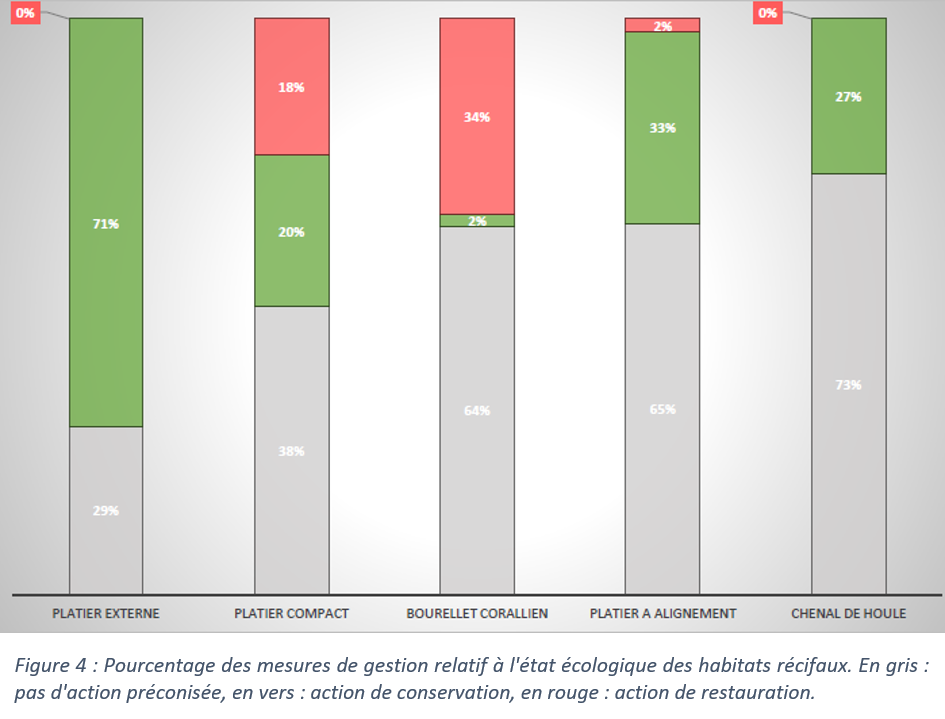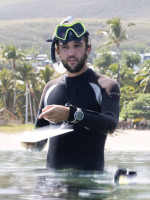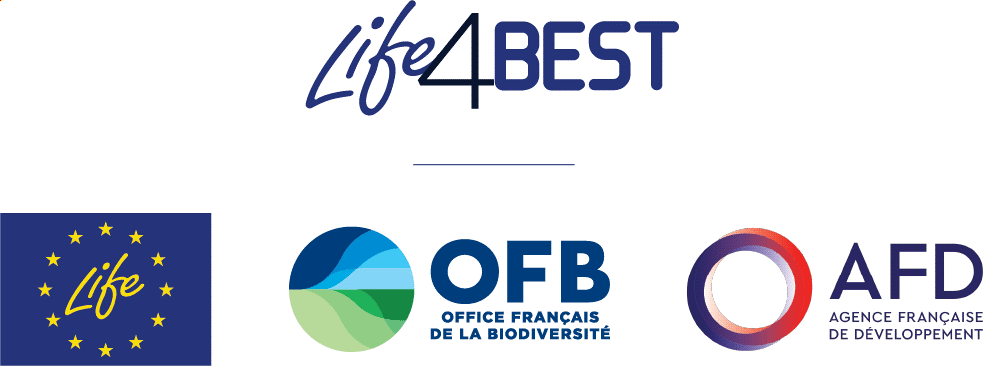UTOPIAN project
IDENTIFICATION OF PRIORITY CONSERVATION AREAS ON THE REEF FLATS OF REUNION ISLAND
On the basis of current monitoring networks (GCRMN, reserve effect, DCE, POPMER, Reef Check), it can be stated that Réunion's coral reefs are deteriorating. Given this situation, there is an urgent need to locate, qualify and quantify the ecological challenges and to identify and prioritise the causes of the deterioration observed.
With this in mind, IFRECOR has been commissioned by the Ministry for Overseas France and the Ministry for Ecological Transition to develop a method for quantifying ecological gains and losses within coral reefs and their associated habitats (seagrass beds and mangroves). This additional information on the ecological status of reefs should complement the monitoring networks already in place.
Since 2013, discussions have been taking place on this methodological approach (Pinault et al., 2017a,b). The CORRAM (COral Reef Rapid Assessment Method) was launched in 2020. Ecological status can be assessed using ecological indicators, all justified by existing scientific literature and based on the ecological functions of taxonomic groups. A total of 12 ecological metrics were assessed in situ in a semi-quantitative manner.
The sampling plan grids the entire epi-reef of a reef complex in 50x50m squares, i.e. 2,500m².
At each station, all the ecological metrics are assessed. Substrate metrics were assessed by five fixed points of 100m² each and mobile fauna metrics were assessed by two random 10-minute runs.

CORRAM's sampling effort makes it possible to move from the station scale to the surface scale using geostatistics.
Spatial interpolation analyses (ordinary Kriging) translate the information gathered in situ into maps of the spatial distribution of the ecological status of the metrics assessed (Figure 2). A habitat approach can also be translated, providing information on the vitality of the benthic population by habitat (Figure 3).


In 2021, the first project to use CORRAM to assess the ecological status of Réunion's epi-reefs will be launched: UTOPIAN.
UTOPIAN has four major objectives:
- To assess the ecological and environmental status of Réunion's internal reef plains on a fine spatial scale
- To explore the causal links between ecological status and environmental pressures
- To identify areas of ecological concern in line with the needs of Réunion's Marine Nature Reserve
- Raise awareness by training BEST-ALI master's students at the University of La Réunion and by communicating with all sectors of society.
Achieving these objectives will make it possible to distinguish between areas with a high level of degradation and areas with a high level of conservation by quantifying the relative percentage of each (Figure 4). The guideline, beyond the UTOPIAN project, is to use the GCRMN stational approach and the CORRAM surface approach to produce an Atlas of the ecological status of the epi-reef complex on Réunion. Three chapters should make up this work: (i) an assessment of the epi-reef complex on Réunion, (ii) an understanding of the environmental factors influencing the spatial distribution of the ecological status, and (iii) proposals for management and restoration. This Atlas will be accessible to all, and will be particularly useful for public policies such as the DEAL and the Réserve Naturelle Marine de La Réunion. The aim is to provide a complete picture of the state of health of the reef and the pressures it is under, so that public policies can act to protect our coral reefs.
Pinault, M., Pioch, S., Pascal, N., 2017a. Livret 1 - Guide pour les études d’impact environnemental en milieux coralliens de France et d’Outre-mer. In: IFRECOR (ed), France, 50.
Pinault, M., Pioch, S., Pascal, N., 2017b. Livret 2 - Guide pour la mise en oeuvre des mesures compensatoires et la méthode de dimensionnement MERCI-Cor, in: IFRECOR ed, France, 50.
pARTICIPANTS NOT FROM ENTROPIE :

BROUDIC LEO
PINAULT MATHIEU






